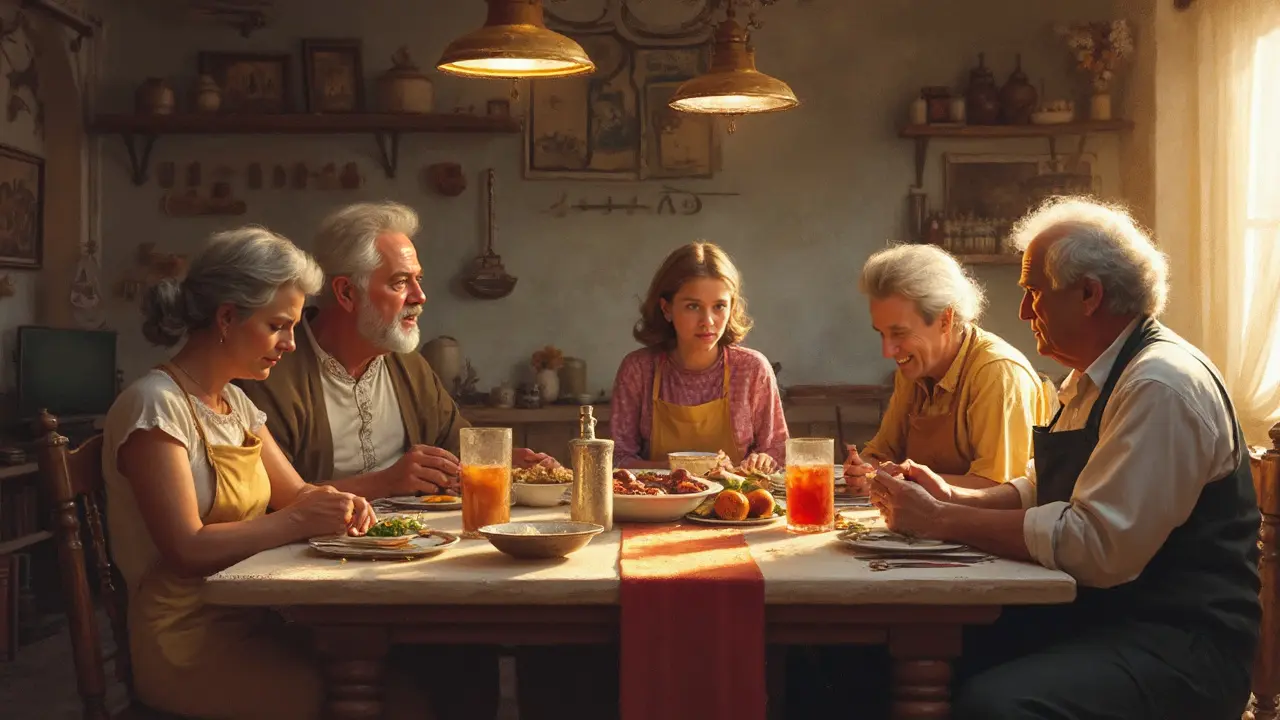
If you think every famous face in Hollywood comes from the same cut-and-paste background, you’d be wrong. Lisa Ann’s story carries a twist: deep Roman roots that shape her voice, attitude, and the way she carries herself. People are always surprised when she drops little clues about her upbringing—ancient recipes, an obsession with museums, a passion for storytelling that echoes the great Roman orators. These aren’t just quirks. They’re inherited fragments of an origin story most folks never see on the big screen. So, how does someone raised among stories older than America itself turn those threads into modern stardom? It starts with a family unwilling to let tradition fade, even when oceans and eras stand in the way.
Family Legends and Rome’s Lingering Shadows
Lisa Ann never shied away from her Italian roots—in fact, she wears them almost like a badge. Her family’s oral tradition is alive and kicking, with ancestors who once roamed the streets near the Roman Forum. Ask her about her favorite childhood memory, and she’ll talk about her nonna’s stories: midnight rides through olive groves in Lazio, mosaic fragments tucked away in dusty drawers, and family reunions where everyone argued about history as much as the sauce recipe. Rome, for Lisa Ann, wasn’t just a point on a map. It’s baked into her bones. Her family came from the heart of the city, and their tales are still peppered with Roman slang. That tradition wasn’t just about where the bloodline started—it formed how Lisa Ann sees ambition and loyalty. You learn a lot from a culture where every stone has a legacy. Rick Steves, the travel writer, once said,
“Rome’s past is always present, haunting, and inspiring those who come after.”Lisa Ann’s family held onto that sense of legacy even in a new land. Their kitchen was never just a place for pasta—it was a command center where Roman legends lived and breathed, shaping Lisa’s sense of honor and drama.
Roman Values: The Backbone of Identity
Some say Italian families are intense. That’s a light way of putting it. Lisa Ann’s world was full of big personalities, each channeling the virtues of old Rome—courage, family above all, and a certain stylish stubbornness. There’s a term, ‘famiglia,’ that means more than just “family.” It’s your tribe, your safety net, your learning ground. Lisa Ann grew up hearing tales of Roman emperors, gladiators who refused to lose, and piazza life where everyone’s business was public. The classic Roman traits—resourcefulness, pride, and the ability to bounce back after a setback—quickly became part of Lisa Ann’s toolkit, even before she knew she’d need them. She wasn’t just a kid in America; she was a modern echo of a city where every stone tells a story. There’s cool data out there showing Italian-Americans top the charts in preserving their cultural roots—even several generations out, they keep the family dinners, religious festivals, and that do-or-die attitude. A 2019 Pew Research Center survey showed more than 87% of Italian-Americans still practice at least one significant family tradition every year. For Lisa Ann, those values fueled ambition rather than just nostalgia. That Roman push—the drive to build, perform, and lead—moved her from local stages to national fame.

Stardom Through a Roman Lens
Success in showbiz usually gets passed off as “luck” or being in the right place. But Lisa Ann’s journey is pure grit, with a dash of Roman-style cunning and boldness. Her Roman heritage gave her stories, sure; but more importantly, it gave her the idea that if you want a crowd to listen, you have to make them care. In Rome, the greatest leaders weren’t always born—most of the famous ones built reputations from humble beginnings, battling obstacles that would scare off lesser mortals. Lisa Ann’s attitude mirrors that history. She’s known for treating fans like long-lost relatives, sharing stories that blend celebrity drama with neighborly warmth. People love an authentic voice, and hers has a rhythm that’s unmistakably Italian—quick-witted, unfiltered, never boring. One thing Roman families know: never let anyone silence your story. Lisa Ann’s rise in her career felt like a daily reenactment of a Caesar or Gladiator—one eye on the audience, the other on the legacy she was building. She often brings up Roman festivals in interviews, hinting that her stage presence taps back to the “spectaculum” tradition—captivating the crowd, never letting the energy drop. The spark isn’t just natural; it’s centuries old.
The Tangible Traces: Artifacts, Food, and Language
Lisa Ann’s Roman ties aren’t locked away in abstract memories—they’re everywhere in her daily life. Her home is scattered with relics: a marble bust on the mantel, a faded black-and-white photo of her great-uncle in the Roman military, recipe books splattered with red from decades of Sunday sauce battles. She talks about a particular necklace—a gift from her grandmother—that’s an actual mosaic fragment said to come from a Roman villa unearthed during 20th-century construction in Trastevere. The family swears by it as a lucky charm, passing it to the daughter most likely to “make something of herself.” Then there’s the food: you won’t find canned sauce in her kitchen. Every dish follows rules her ancestors enforced, down to the pinch of nutmeg and fresh basil. She sometimes cracks jokes in Romanesco, the dialect of her people. Even her pets have Roman names. Lisa Ann’s traditions are living things—she records new versions of old family recipes, keeps a digital museum of old letters and photographs, and helps organize Italian heritage festivals across the state every June. Here’s a quick look at how these things stack up, even in modern times:
| Tradition | Lisa Ann’s Approach | Average Italian-American Household |
|---|---|---|
| Family dinners | Twice a week, strict attendance | Once a week, often flexible |
| Language retention | Speaks dialect at home | Less than 18% second-generation fluent* |
| Festival participation | Organizer and volunteer | About 35% attend yearly* |
*Data from the National Italian American Foundation, 2023 Report.
She’s always looking for more ways to keep it fresh—uploading recipe videos, writing blog posts in both English and Italian, playing classic Roman cinema during family movie nights. Every artifact and ritual is a thread tying her back to that old eternal city.

Lisa Ann’s Roman Legacy in Today’s World
People like to say that ancestry is just a backdrop, but for Lisa Ann, it’s a toolkit. Her Roman roots don’t just color her personal life; they influence everything from business decisions to how she builds relationships. In an industry where it’s easy to get lost in the machine, she sticks to Roman-style loyalty and partnership, never taking the easy exit when she can fight for a cause. Fans often ask for advice on maintaining identity amid chaos. Lisa’s answer is simple: don’t let legacy gather dust—update it. She recommends making old traditions new: modern twists on Roman recipes (she’s got a spicy penne alla vodka that’s gone viral), digitizing family albums, and using language apps to keep dialects alive. She supports young Italian-Americans by mentoring them, encouraging them to find pride in their roots rather than blend in. She’s even pushed projects about ancient Rome into mainstream culture, helping people see past the toga clichés to what being Roman means right now—richness, imagination, and refusing to forget where you started. Her social media is packed with stories and snapshots from Italian-Americans making an impact, giving her fans both a community and a playbook for honoring their own backgrounds.
Lisa Ann’s Roman spirit isn’t about nostalgia for a past that’s gone. It’s about weaving old-school pride into the fabric of every day. She shows that traditions are powerful if you let them evolve, and she’s living proof that sometimes, the true secret to stardom is hidden right in your family’s ancient tales. If you’re hunting for ways to keep your own heritage alive, take a page from Lisa Ann—turn every day into a festival, every meal into a memory, and let the past talk as loudly as you want your future to be. That’s how legends are made—and remembered.



